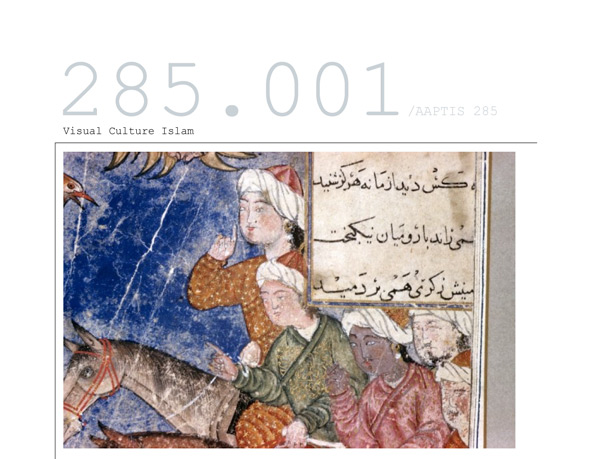
This course introduces students to the civilization of Islam through its visual cultures. Its goal is to help students understand the unprecedented complexity of the venture of Islam, in which shared Qur'anic precepts that were based on the transcendence of faith above all other signifiers of identity, were in practice, cast in light of the enormous racial, ethnic, lingual and cultural diversity of the umma (Muslim community) and the conquered. We examine the visual representations of the production of Islam from Spain and Morocco to China and Indonesia, from Detroit to Mali, along the way spanning the period from the advent of Islam in the seventh century to the rise of Colonialism and its aftermath in modern times. Through case studies of key monuments of architecture (mosques, mausoleums, palaces, garden ensembles and urban environments), luxury objects of utility (ceramics, metalwork, glass, textiles, etc.), painting and the arts of the book, we analyze the ways in which artists, patrons and the denizens of cities in the Islamic world deployed the visual to enunciate the spiritual and intellectual values, the socio-economic parameters, and the racial, ethnic, gendered and lingual particularities of vastly divergent cultural regimes. We examine the meaning of race and ethnicity in Islam and contrast it with the dominant Euro-American paradigms. Emphasis will also be placed on the problematic Eurocentric interpretations of such complex interlace of cultures of Islam as an unchanging, monolithic phenomenon. Instead, we consider the processes through which tensions in human diversity contributed to competing and converging artistic idioms within the so-called Commonwealth of Islam. Special attention will be given to the interaction between the new faith and pre-Islamic traditions of the conquered and to the dynamic interplay between indigenous and Qur'anic cultures as they developed and coalesced. Estimated cost of materials: $50 or more, but less than $100. I. III. 2, 3
Fulfills Race and Ethnicity Requirement
Instructor(s): Sussan Babaie
email: sbabaie@umich.edu
Tuesday and Thursday
11:30pm - 1:00pm
1449 MH
4 Credit Lecture *Crosslisted w/ AAPTIS 285